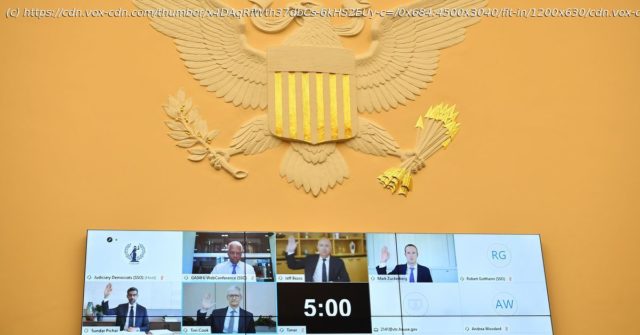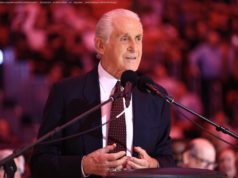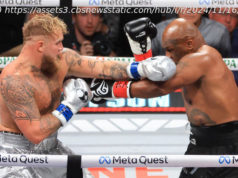The heads of Amazon, Apple, Facebook, and Google fielded questions from members of Congress, some better than others.
Uncovering and explaining how our digital world is changing — and changing us. On Wednesday, four of the most powerful people on the planet testified before Congress. The CEOs of Amazon, Apple, Facebook, and Google — who together control companies worth nearly $5 trillion — called in individually via videoconference and fielded questions for nearly six hours. Some questions were tough. Some were just all over the place. It was a scattered and, at times, awkward hearing. Members of the House Judiciary Subcommittee on Antitrust received only five minutes at a time to ask all four executives questions. The event was also full of all the technical glitches you can expect in a standard video chat, as well as some anticipated but nevertheless distracting political drama. Democrats focused on whether the companies are engaged in anticompetitive practices that crush competitors and harm consumers. Much to Democrats’ frustration, many Republicans diverted from antitrust issues to focus on unfounded claims of anti-conservative bias on social media platforms and Google. While the marathon hearing won’t result in any immediate political or regulatory action, it could apply pressure to antitrust regulators at the FTC and DOJ and set the stage for broader government probes into these companies’ business practices and the laws that have failed to rein them in. The event also stands to influence the public’s opinion of tech at a time when nearly half the country thinks the industry needs government regulation. Naturally, some emerged from the debacle looking like winners. There were also some clear losers. Rep. Pramila Jayapal Pramila Jayapal, a Democratic Congress member from Washington, came prepared with sharp lines of questioning for the witnesses, particularly for Amazon CEO Jeff Bezos and Facebook CEO Mark Zuckerberg, who she grilled about the 2012 acquisition of his company’s then-competitor Instagram. Jayapal directly quoted internal documents to press Zuckerberg when he repeatedly denied strong-arming Instagram founder Kevin Systrom into a deal. Instead of moving on to another question, Jayapal read back old emails and strategically reminded Zuckerberg that he was under oath to tell the truth. After a tense back-and-forth, the Facebook CEO told Jayapal he disagreed with her characterization of his messages to Systrom. “I think it was clear that this was a space that we were going to compete in one way or another,” Zuckerberg said. “I don’t view those conversations as a threat in any way.” .@RepJayapal asks Facebook CEOs Mark Zuckerberg about copying and threatening smaller competitors like Instagram and Snapchat in order to pressure them into selling to the company. Full video here: https://t.co/CNTNmIDxiY pic.twitter.com/Itwu0lRf77 But Jayapal, who had clearly done her homework, had more proof, citing messages in which Systrom shared his worries with an investor that Zuckerberg would go into “destroy mode,” copying and crushing his app if he rejected a deal. “Facebook is a case study in monopoly power, because your company harvests and monetizes our data and then your company uses that data to spy on competitors and to copy, acquire, and kill rivals,” said Jayapal at the end of her round of questioning on the Instagram deal. Jayapal’s questions produced some of the most damning evidence presented at the antitrust hearing. It demonstrated how Facebook’s market dominance can strike fear in its competitors, even if it’s still undecided whether that fits the legal threshold for anti-competitive behavior. Tim Cook Even though his company has faced intensifying allegations of antitrust violations in recent weeks, Apple’s CEO Tim Cook only received about half of number of questions as his tech CEO rivals, according to an analysis by VentureBeat, Cook did face some tough questions about whether Apple takes too big of a cut from the revenue of third-party developers that sell apps in its App Store.






